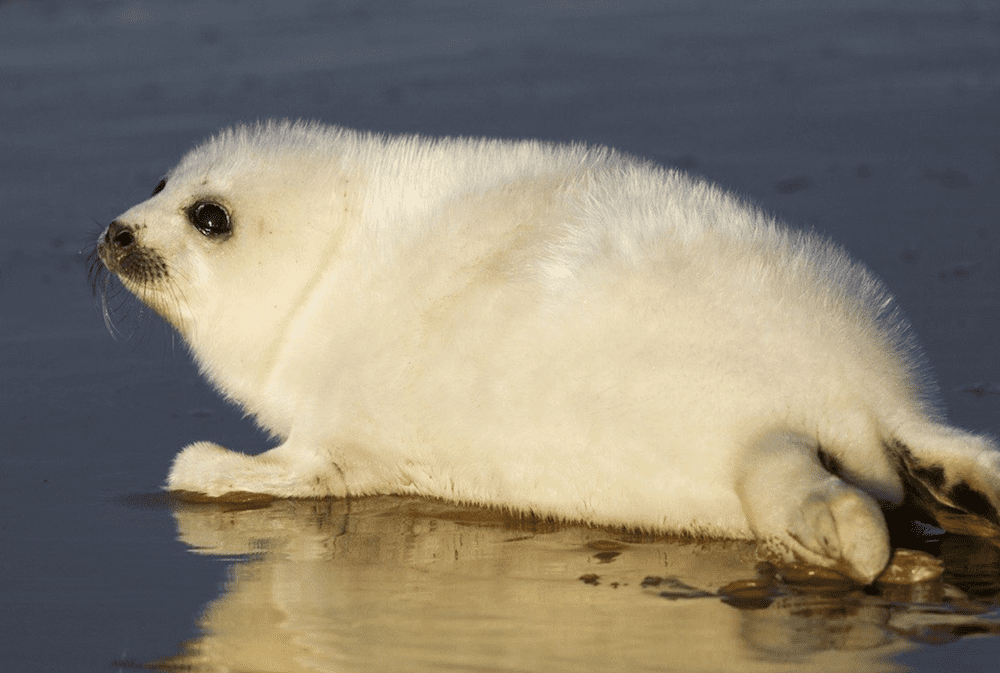To Become a Retailer

Retail Customer


Harp seals can be found in the pack ice throughout much of the North Atlantic and Arctic Oceans. They are known as “earless” seals because they lack external ear flaps. Adults have light gray fur, with a black face and a horseshoe-shaped black saddle on their back which looks like a harp, and gives these seals their name. Harp seal pups are born with a fluffy white coat that helps them to hide from predators and keeps them warm too. The white fur only lasts until the pups are 2-3 weeks old, and it makes the little guys look adorably fluffy and cute.
Harp seal pups are born from late February to mid-March. The pups’ long, wooly, white fur undergoes a series of molts before reaching the grey color of adults. At birth, harp seals are just under 3 feet long, and weigh about 25 lbs… or around the size of a two year old baby. These pups nurse on high-fat milk for approximately 12 days, during which they gain about 5 lbs per day and develop a thick layer of fat called ‘blubber’. This blubber plays an important role in keeping the harp seal warm in icy weather. Harp seal pups are abruptly weaned from their mothers after about two weeks. Adult females leave their pups on the ice where they remain without eating for approximately 6 weeks. Pups can lose up to half of their body weight before they enter the water and begin feeding on their own.
Humans are the main threat to harp seals. It is illegal to hunt harp seal pups, but adult harp seals are hunted extensively. Loss of sea ice is another potential threat to their habitat.